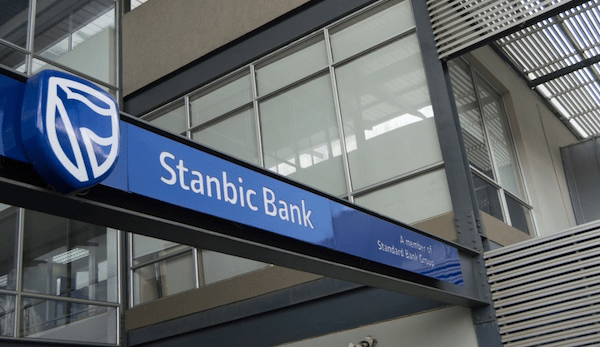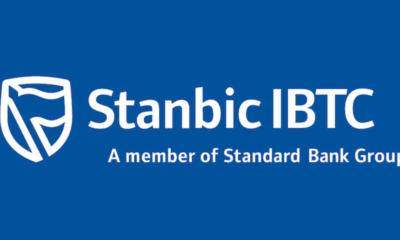Determined to foster gender parity and sustain its reputation as a gender-friendly organisation, Stanbic IBTC Holdings PLC continued to ensure that every female employee has equal opportunities for career growth within the group.
There have been gales of promotions of deserving female employees to senior executive positions, which was perhaps unprecedented in the financial services industry. These female executives were promoted as a reward for their excellent performance and outstanding contributions to the growth of Stanbic IBTC.
Some of the executive appointments comprised the elevation of Wunmi Ehis-Uzenabor to the position of Executive Director, Operations, Stanbic IBTC Asset Management; Busola Jejelowo as Executive Director, Investments, Stanbic IBTC Asset Management and Titi Ogungbesan as Chief Executive of Stanbic IBTC Stockbrokers. Others were Emi Agaba-Oloja and Sakeenat Bakare, who assumed the roles of Executive Director, Stanbic IBTC Trustees; and Executive Director, Business Development, Stanbic IBTC Insurance, respectively.
These promotions, which were in line with Stanbic IBTC’s corporate governance structure and succession policy, further showcased the financial institution’s pedigree as an equal-opportunity organisation.
Stanbic IBTC has always been forward-looking in terms of its recruitment and succession policies. The organisation has always believed that females are as talented as their male counterparts. They also contribute immensely to the growth of the business and the society at large if given the opportunity.
Proof of this belief is Sola David- Borha, who rose through the ranks to become the Chief Executive, Stanbic IBTC Bank and later of the Stanbic IBTC Holdings PLC before moving to Standard Bank Group where she became Chief Executive, Standard Bank Africa Regions, a role she held till her retirement in April 2021.
Bunmi Dayo-Olagunju also transitioned from Chief Executive, Stanbic IBTC Asset Management to becoming the Executive Director, Engineering of the Bank. Other top females in the group include Funke Amobi; Head People and Culture Stanbic IBTC, Bridget Oyefeso-Odusami; Head Brand and Marketing , who are Non-Executive Directors at Stanbic IBTC Asset Management. Ibiyemi Mezu, Executive Director, Stanbic IBTC Insurance Brokers, Bunmi Olarinoye; Executive Director, Stanbic IBTC Stockbroking, Olusola Carrena and Oyinda Akinyemi Executive Directors in Stanbic IBTC Capital, Omolola Fashesin; Head Risk and Capital Management a Non-Executive Director with Stanbic IBTC trustees and Nnenna Anyim Okoro; Head Consumer Sector, Wholesale Clients, Non – Executive Director Stanbic IBTC Pension Managers Limited.
“For us, achieving gender inclusiveness is not only a fundamental human right but also a business imperative. We have teams headed by females who are doing great things for the business. Stanbic IBTC has remained at the forefront of gender equality and inclusion by providing platforms through which women flourish and excel. We have continued to demonstrate our belief in a gender-balanced representation in all areas of society through women-focused initiatives,” Dr Demola Sogunle, the Chief Executive, Stanbic IBTC Holdings PLC, said.
In 2020, the Bank temporarily changed its logo colour from blue to magenta to celebrate the UN Women HeForShe movement focused on women’s solidarity and gender equality. Also, the HeForShe campaign was massively supported by the institution to drive the narrative of improving the representation of women in leadership positions across the board.
Addressing the commitment of the Bank in ensuring a gender-inclusive workplace, Demola highlighted that Stanbic IBTC, as an organisation, remained at the forefront of championing women empowerment in Nigeria through laudable projects such as its seed funding initiative for women in agriculture in partnership with the United Nations, and the promotion of women-focused products such as the Blue Blossom account which is targeted at female entrepreneurs to help them drive business growth.”
Evidence of Stanbic IBTC’s backing for the female gender is also inherent in its support for the Blue Women Network (BWN), a network of female employees of the Stanbic IBTC Holdings PLC. Nnenna Anyims Okoro, Chairperson, BWN, said: “Stanbic IBTC has truly created an environment where women feel appreciated, rewarded, and are encouraged to blossom and achieve their full potentials. As a result of this support, the BWN can galvanise support, thereby creating positive impacts in society through our numerous corporate social initiatives and empowerment programs. Internally, the BWN as a network has supported female employees through various mentorship engagements and knowledge sharing resulting in the enhancement of their professional skills.”
The leading end-to-end financial organisation continues to challenge gender discrimination and stereotypes, thereby changing the workplace as we know it.


 Naira4 weeks ago
Naira4 weeks ago
 News3 weeks ago
News3 weeks ago
 Education4 weeks ago
Education4 weeks ago
 Social Media4 weeks ago
Social Media4 weeks ago
 Technology4 weeks ago
Technology4 weeks ago
 Investment4 weeks ago
Investment4 weeks ago
 Dividends4 weeks ago
Dividends4 weeks ago
 Economy4 weeks ago
Economy4 weeks ago


















